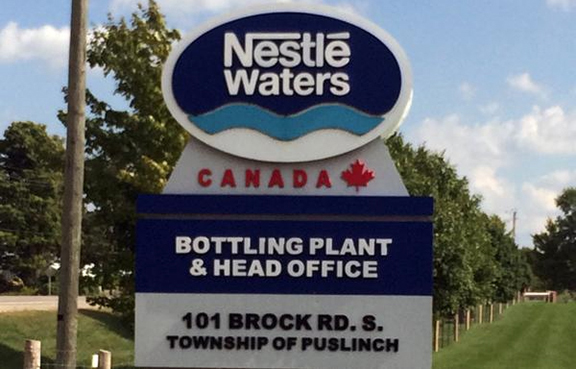CENTRE WELLINGTON – There’s good news and bad in the passing of Bill 213, the Better for People, Smarter for Business Act, 2020, and as April 1 approaches, the local group Save Our Water is bracing for what may come.
“The concern we have is that after the moratorium is lifted on April 1, a lot can happen at that point,” said Donna McCaw, a member of the local citizen’s group.
Bill 213, which passed on Dec. 8, 2020, is broad and sweeping and contains changes to numerous provincial acts to do with business, insurance, mining, pensions, and name changes, to name a few.
Section 17 deals with changes to the Ontario Water Resources Act, which has been amended to require any company seeking a water permit to take ground water for the purpose of producing bottled water, in any municipality in Ontario, to have the support of the local municipal council where the water will be taken.
McCaw said Centre Wellington council has already declared water to be a public trust, meaning it should not be privately owned, and passed a resolution in May 2018 that Centre Wellington is “not a willing host community for water taking for commercial water bottling under any circumstances.”
That means the permit to take water from the Middlebrook well in Elora that Nestle Waters Canada has requested, and that has been on hold since the province put a moratorium on water-taking permits, would need approval from Centre Wellington council to move forward.
“We know with the municipal veto they probably won’t get the permit,” McCaw said. “But there’s a loophole and that’s the concern.”
The bill still allows water bottling companies to apply to take up to 379,000 litres of water a day without consent of the municipality, and in Centre Wellington, that’s a big problem, McCaw said.
“It’s not as much but it’s still too much for Centre Wellington,” she said.
Centre Wellington has unique water issues, McCaw said, as is made clear in the Water Supply Master Plan and the Tier 3 Water Budget Study, which identify that Centre Wellington is “at significant risk” for future water supply.
The studies have identified that the township needs four new wells to accommodate growth and the Middlebrook area, just west of Elora, is the best site for future wells. So taking even 379,000 litres a day, while far less than requested, would put the township’s water supply at risk, she said.
“That’s fine for most areas but in this area, that location is too much,” McCaw said.
Save Our Water is concerned that Nestle Waters Canada may decide to start pumping tests at Middlebrook, “and if they decide it’s great water and they want to take it, they can,” she said.
Nestle has made it clear it wants to sell the water bottling company and McCaw fears that a functioning well at Middlebrook could sweeten the deal for potential buyers.
“Even 370,000 litres would interfere with present and future wells,” McCaw said. “We’re strained as it is. We had challenges over the summer.”
Colin Baker, managing director of infrastructure services for the township, said in an interview that there was a water main break in Elora in July and a well in Fergus has been offline since late last summer as they are waiting for a replacement part.
“We expect six to 12 watermain breaks in a year, but this was a large break,” Baker said, adding that watermains with cast iron pipes are gradually being phased out.
Baker said the township submitted comments to the province before Bill 213 was passed and recommended a threshold of 50,000 litres.
“Unfortunately the province did not take that suggestion,” he said. He added Nestle would still need a permit to take water to pump from Middlebrook, “so there are still some checks and balances,” but the township wouldn’t have a say if the quantity to pump is less than 379,000 litres.
McCaw hopes residents will keep informed about what is happening with their water.
“We believe any amount of water taken from Centre Wellington to go into plastic bottles is an environmentally destructive practice,” she said.
“And any volume extracted from the west side of Elora, where the Middlebrook well sits, could interfere with developing future municipal wells in Centre Wellington.”
With the moratorium set to lift on April 1, the group is ready to leap into action if necessary.
“I thought this crusade would take a few months but it’s been years,” McCaw said.
“This fight has turned out to be epic.”




